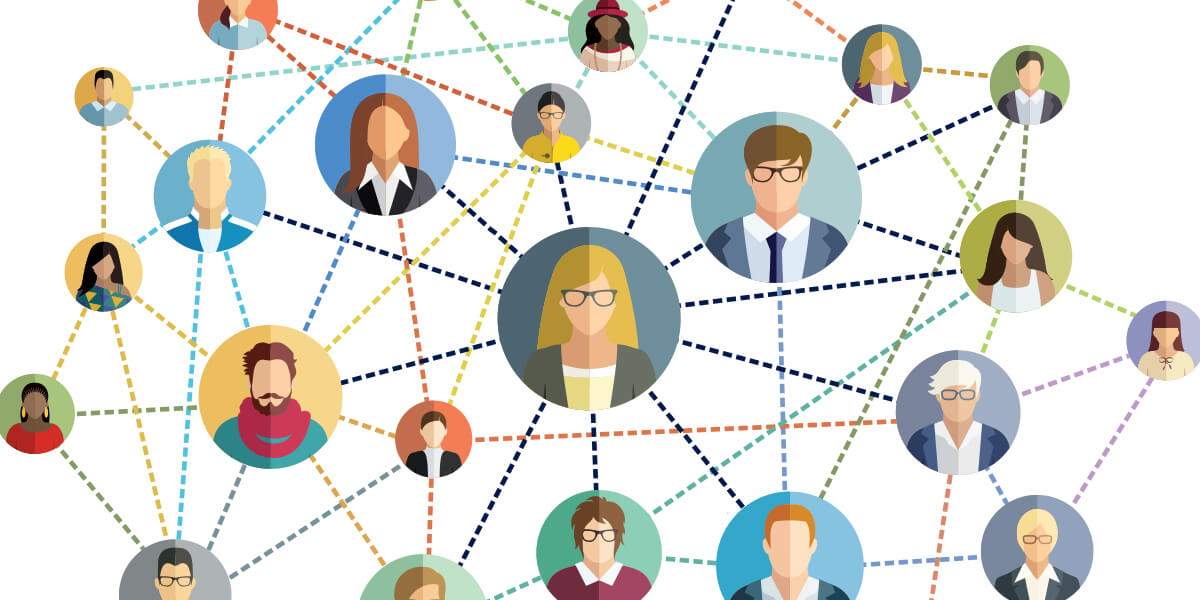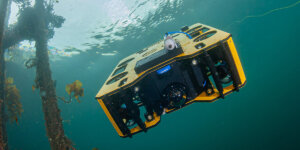
A team led by ISI researchers will create highly accurate, scalable computational simulations of online behavior. Photo/iStock
USC’s Information Sciences Institute will lead a Defense Advanced Research Projects Agency (DARPA) initiative among universities to develop large-scale simulations of online behavior in complex social networks.
Emilio Ferrara, a USC ISI research leader and research assistant professor in the department of computer science at the USC Viterbi School of Engineering, will lead the project with Kristina Lerman, a USC ISI research team leader and research associate professor in the department of computer science at the USC Viterbi School of Engineering.
Indiana University and the University of Notre Dame will collaborate with USC ISI on the four-year project, titled Cognitive Online Simulation of Information Network Environments (COSINE).
Social media use is rapidly increasing across the world, with tens of billions of messages and posts shared every day. As a result, leaders and decision-makers need to better gauge how information reaches audiences worldwide. By creating highly accurate, scalable computational simulations, the COSINE researchers aim to better understand real-world online behavior, specifically how information is produced and consumed by online audiences.
“The simulations will enable a principled exploration of behavioral models that is impossible to do inside a physical lab,” says Ferrara. “It allows us to assess, understand and model a variety of hypotheses about information diffusion on social media.”
“This is important, as we are now seeing how the information we receive online can affect our offline behaviors, personal beliefs and opinions,” adds Lerman.
We are now seeing how the information we receive online can affect our offline behaviors, personal beliefs and opinions.Kristina Lerman
A virtual laboratory
Leveraging the existing capabilities of ISI’s Cyber Defense Technology Experimental Research (DETER) Laboratory, COSINE researchers will create a virtual lab to study the factors that influence online social dynamics, including message content, variance in emotion and cognitive biases. They will also will analyze how these factors affect the speed at which content spreads from individuals to communities to global collectives.
In addition, the engineering researchers will introduce “shocks” to this system, such as crises and emergencies, to see how the affected communities absorb and share information.
“COSINE will provide a holistic understanding of how information spreads on complex massive-scale networks from a mathematical and an empirical standpoint,” says Ferrara.
“We will do this by using agents that encode socio-cognitive mechanisms that drive information sharing in the real world, such as self-awareness and the ability to see others’ perspectives.”
The ISI team will contribute expertise on social network analysis, network-based machine learning and bot-detection, as well as a deep knowledge of human-centered computing, experiment design and management.
“Not only do we have a strong data science team that has collectively spent years analyzing social media, but we are also teaming up with a simulations team with expertise cognitive modeling of decision making in humans,” says Lerman. “This will enable us to validate our empirical findings with principled simulations of online social behaviors.”
Published on October 24th, 2017
Last updated on April 6th, 2025













